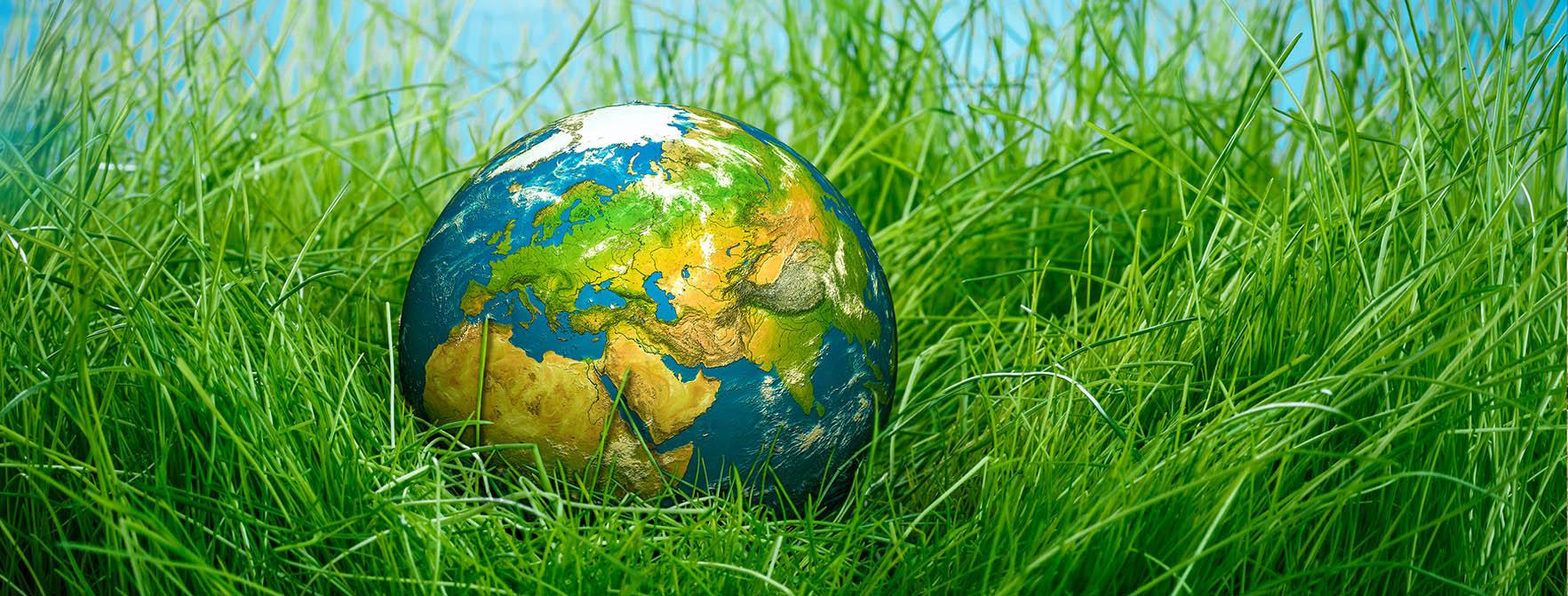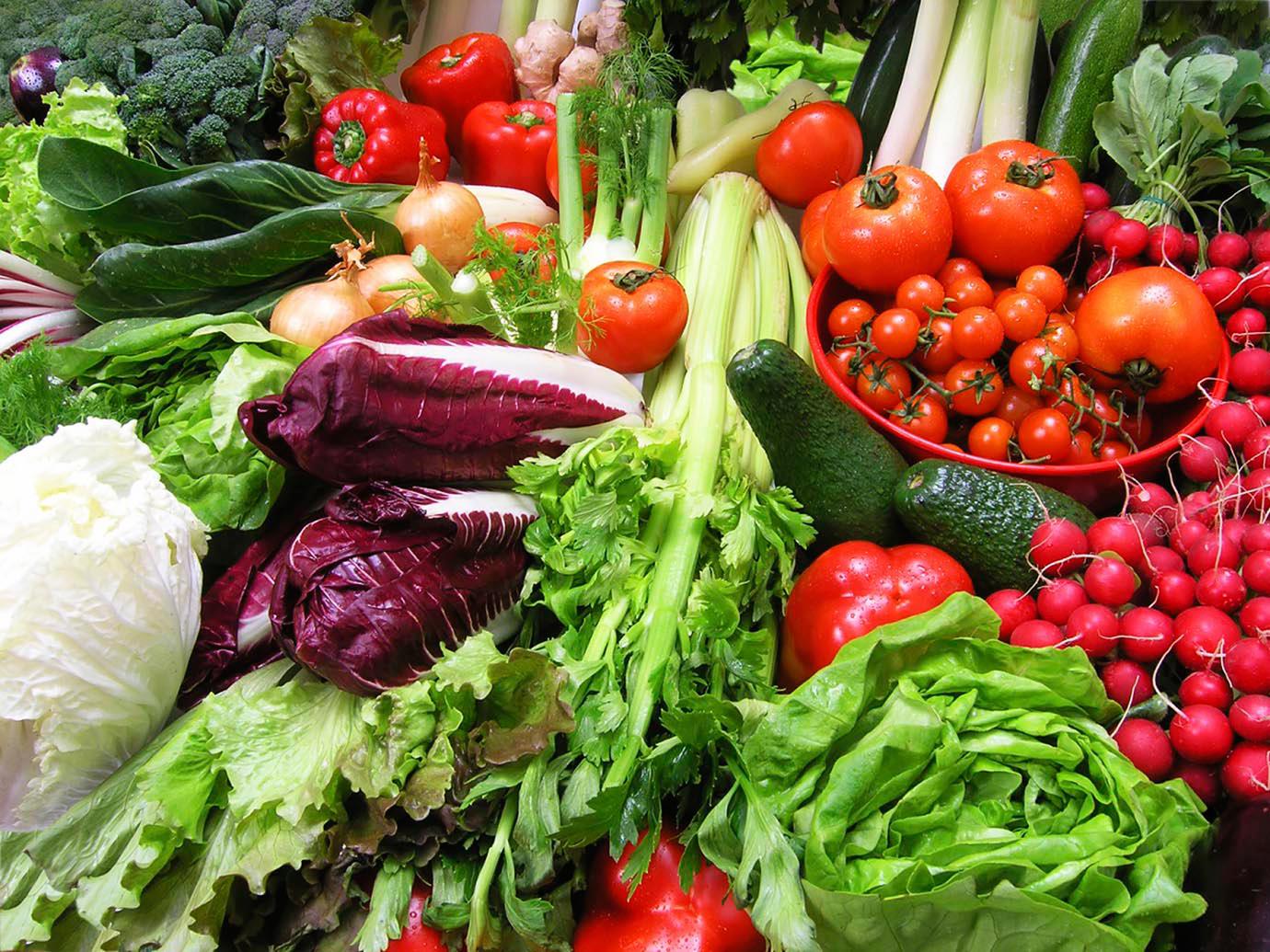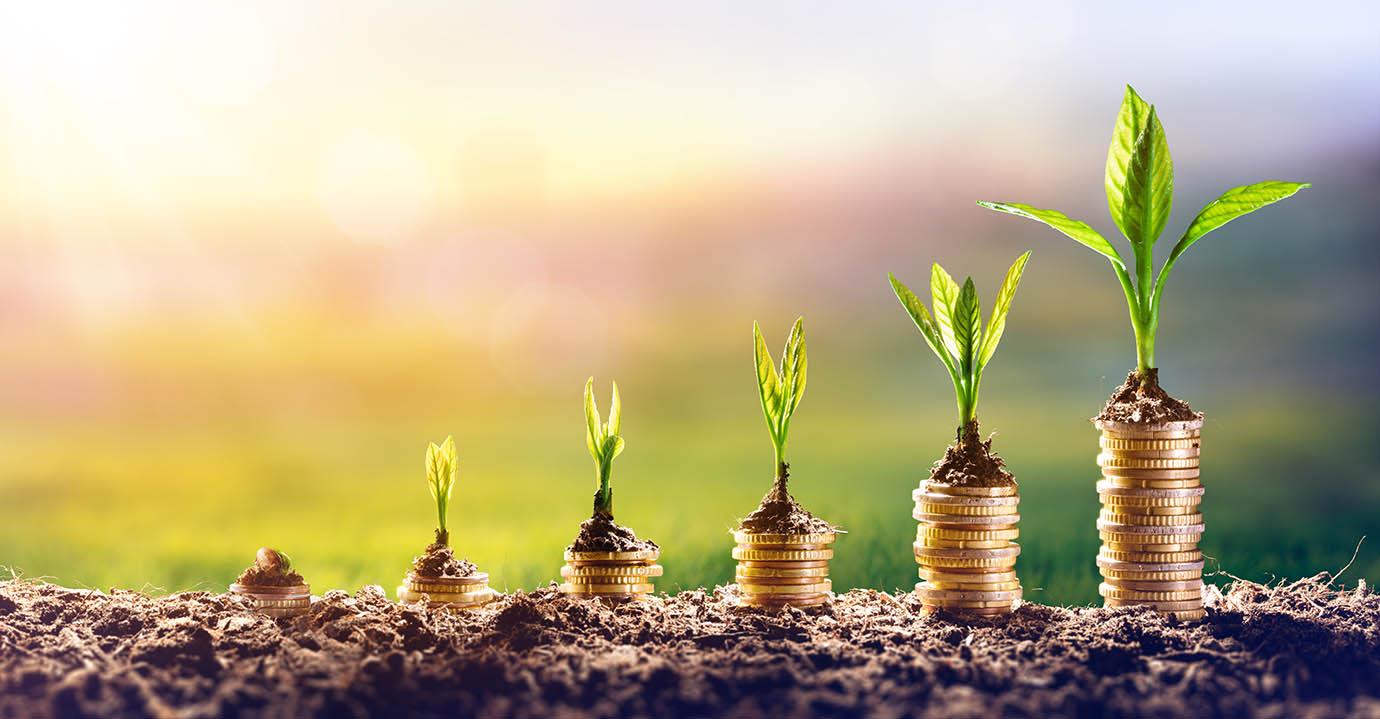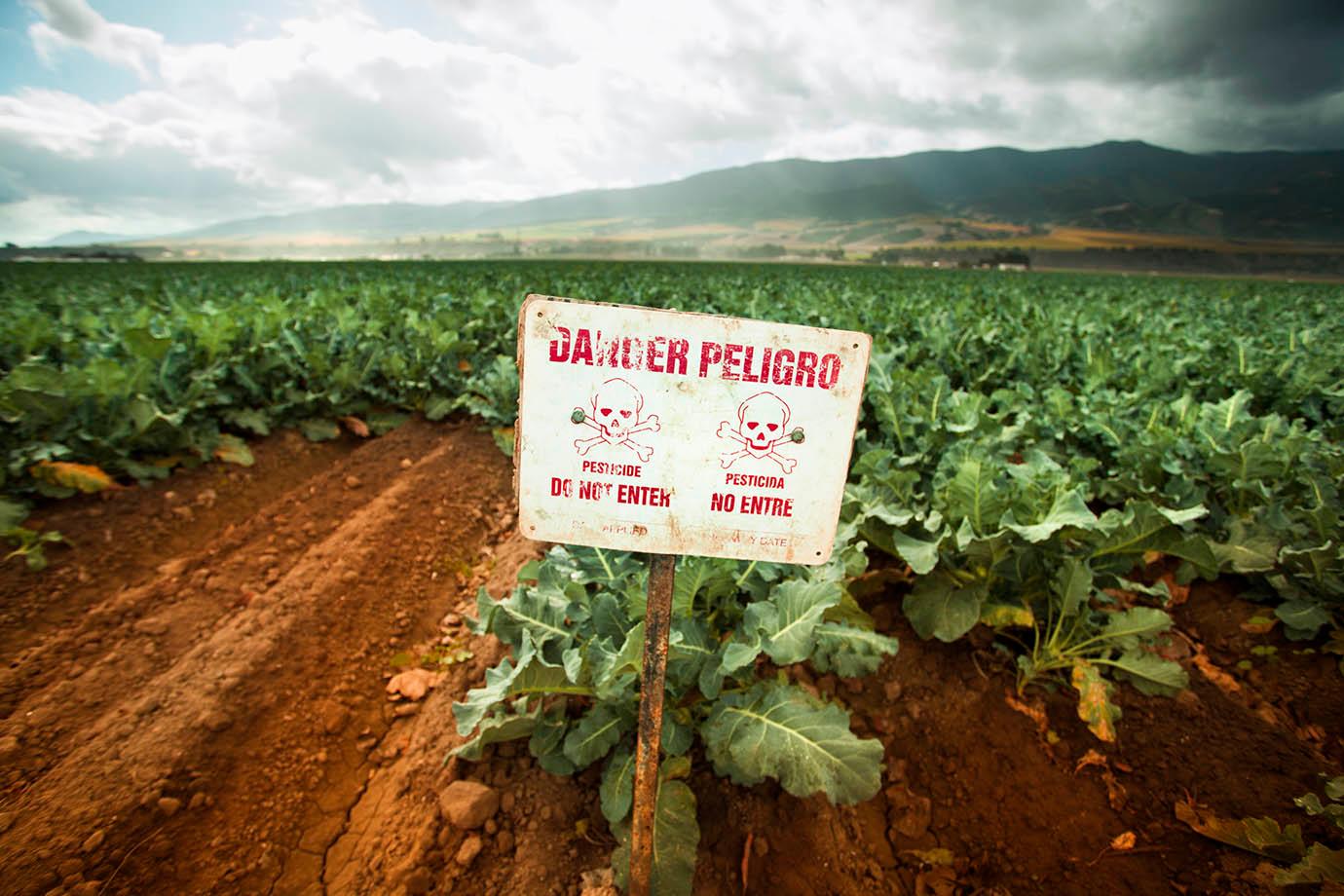
Benefits of Living Organic
The basic theory in organic gardening is that "nature knows best." The organic gardener starts from the soil up, by feeding the soil, not the plant and creating a rebirth in the life and vitality of their lawn or garden. By rejecting the world of harmful chemical pesticides that put your plants and your family at risk, organic gardeners nurture the ground (and therefore all that springs above it) through techniques or systems that are found in nature. Those involved in the organic movement seek to live a cleaner, healthier existence and in a more earth-friendly way.
Nutritional Benefits of Going Organic
The vitamin and mineral content in organic foods is higher than those in conventionally produced foods, thanks in large part to the nutrients and trace minerals found in nurtured and chemical-free soil.
The Soil Association conducted a systematic review of the nutrient information available comparing the vitamin and mineral content of organic and conventionally grown food. It was found that, "on average, organic food contains higher levels of Vitamin C and essential minerals such as calcium, magnesium, iron and chromium.
The independent review of the evidence found that organic crops had significantly higher levels of all 21 nutrients analyzed compared with conventional produce including:
- Vitamin C (27% more)
- Magnesium (29% more)
- Iron (21% more)
- Phosphorous (14% more).
Soil & Food Benefits of Going Organic

Organic farmers and gardeners have a strong commitment to their soil. If they do not abuse the land, it will provide for them and their families for many years to come. Organic gardening helps to prevent a loss of topsoil, toxic runoff, water pollution, soil contamination, soil poisoning, death of insects, birds, critters and other beneficial soil organisms, as well as eliminating pesticide, herbicide, and fungicide residues on food from synthetic fertilizers.
Organic gardening provides for intense, realistic flavors in your food, as well as higher vitamin and mineral content. Increased soil organic matter reduces erosion, conserves water to give drought resistance, and feeds plants in time commensurate with their needs.
As for lawn care, products such as Safer® Brand Lawn Restore® and Concern® Weed Prevention Plus ensure your lawn has all of the essential nutrients necessary to keep your soil in top shape.
Mental & Physical Benefits of Going Organic
There are numerous mental and physical health benefits to going organic. Time spent in the garden working with the soil and plants can be very meditative and peaceful; so much so, that organic gardening has made its way into the mental health industry in the form of Horticultural Therapy.
The practice of horticultural therapy is a process of utilizing plants and horticultural activities to improve social, educational, psychological and physical adjustment of persons to improve their body, mind, and spirit.
In 1973, the American Horticultural Therapy Association (AHTA) was created, recognizing horticultural therapy as a professional discipline in which Blair says "‘trained therapists work with other therapists and medical professionals to help treat physical injuries or disease, mental illness, conditions associated with aging, social problems, and substance abuse."
The principles of organic gardening go hand-in-hand with this approach by eliminating harmful synthetic chemicals, for safe organic solutions to problems in the garden. Tomatoes are a perfect example. Tomatoes are constantly under attack by insects and other pests, and using synthetic chemicals can harm your plants, as well as your family. Using an organic solution such as Safer® Brand Tomato and Vegetable Insect Killer can eliminate the pest problem, organically and provide protection to both your plants and your family.
Financial Benefits of Going Organic

A major bone of contention for consumers making the leap to the organic world is the misconception that organic products are more expensive. While some synthetic chemicals are less expensive than organic, much of the difference is a result of higher quality raw materials and manufacturing process, in addition to the higher cost of organic raw materials.
Despite the higher cost of individual organic products, organic gardening can save you money in the long run. The theory goes that by improving the health of the soil from which the plants grow, a better crop is yielded-fuller and all-natural, feeding a family for years to come. Thus, less money spent in the store for food and items to help your garden, means more money in your wallet. Considered to be more sustainable, organic gardeners use the concept of ‘feeding the soil, not feeding the plant.’ Using that approach keeps your soil free of chemicals, yielding a bounty of your own nutrient-rich vegetables.
The foremost money-saving technique in going organic is composting. Composting is the "usage of decomposed remnants of organic materials as a soil amendment and a seed starting medium in organic gardening that reduces land-fill waste by recycling your chemical free grass cuttings and food scraps." Using a product like Ringer® Compost Plus Organic Compost Starter can help you get started and start saving you money!
Making compost is an easy process that uses "waste" from your lawn and kitchen to replenish nutrients to the soil and the organisms within it. Composting also helps you do your part in reducing the waste that winds up in the local landfill. "‘One-third of the space in landfills is taken up by organic waste from our yards or kitchens." Land-fills are nearing their capacity for rubbish and new sites are getting increasingly difficult to find.
Liken composting to recycling — instead of cans, glass and newspapers, you are recycling your leaves, grass and food waste, returning them to the earth in a beneficial way.
Effects of Chemical Pesticides

Are you wondering how chemical pesticides may affect the lives of you and your family? We have summarized some of their potentially harmful effects on the environment, your health and your home. We have also shown why it is so important to use organic pesticides instead.
Environmental Effects
Studies have shown that chemical pesticides linger in the atmosphere, in the ground, and in our waterways long after the application has ceased. Not to mention, almost 100 years of chemicals, placed on fields across the world, all add up to quite a bit of lingering pollution! Pesticide transfer is a major way in which chemicals cause collateral damage, beyond their intended use.
For example, one source explains that for certain pesticides to be effective, they must move within the soil. Too much movement within the soil can shift the pesticide away from the target pest and possibly into your produce. This can result in reduced pest control, contamination of surface water and groundwater as well as injury to non-target species, including humans. Pesticides always end up traveling outside of their intended area of use, either by air, soil or water.
While nothing can completely eliminate the traveling aspect of pesticides, Safer® Brand organic pesticides minimize the environmental risks during the voyage. Most Safer® Brand products break down into their natural elements within 7-10 days, making them a big step in the right direction towards reducing potential risk of any chemical pesticides entering our food supply.
Effects on Soil
Once farmers began widespread use of chemical pesticides across the world, a drastic change in soil health followed. "The United States government estimates that levels of trace minerals in fruit and vegetables fell by up to 76% between 1940 and 1991" says Cleeton. The depleted nutritional value of our soil is tied directly to widespread increased exposure to pesticides.
Our non-organic foods contain a lot more than depleted nutritional value with research consistently finding pesticide residues in a third of food, including residues of more than one chemical in the following: apples, baby food, bread, cereal bars, fresh salmon, lemons, lettuce, peaches, nectarines, potatoes and strawberries.
If it can be said that these chemicals are "meant" for the ground or for insects, they certainly are not meant to enter our bodies, especially since pesticides are designed to kill living organisms.
Going organic allows one to start from scratch with the soil.
Decreasing soil chemical contamination creates an overall "return to nature", bringing back nutrients, helpful organisms and yielding clean, unaltered produce, grown by you, in your own healthy, organic garden. Using pesticide products that are compliant for use in organic production, such as Safer® Brand 3-in-1 Concentrate and Safer® Brand EndALL®, can keep your garden healthy and bug-free, and most of all, keep your family healthy!
Health Effects
Synthetic pesticides have been linked to a myriad of diseases. Many studies have concluded that people should reduce their exposure to pesticides, because of links to serious illnesses. Results of these studies found consistent evidence of serious health risks such as cancer, nervous system diseases and reproductive problems in people exposed to pesticides.
Similar research has cited the increased presence of neurological disorders, Parkinson’s disease, childhood leukemia, lymphoma, asthma and more unpleasant disease occurrences, for those with ample exposure to chemical pesticides. Converting to organic pesticides is a logical step to potentially help reduce the chances of disease or accelerating the course of a disease
Grow your own vegetables such as tomatoes? Using Safer® Brand Tomato and Vegetable Insect Killer, another pesticide that is compliant for use in organic gardening, will keep your plants free from pests, and keep your family free from harmful pesticides!
Remnants of pesticides have been found in the blood streams of those suffering from certain types of cancer. The Facts About Organic Foods; Having More Vitamins and Minerals Protects You From Chronic Disease claims that: "Women with breast cancer are five to nine times more likely to have pesticide residues in their blood than those who do not." The apparent link between hormone dependent cancers, such as those of the breast and prostate, may be via endocrine disrupting chemicals such as 2,4D and Atrazine (both herbicides).
With daunting statistics such as these, why are more not making the move to organic pesticides? We feel it is education. Once more people become aware of the potential risks associated with produce treated with synthetic chemicals, the faster they will convert to organics and organic pesticides. Enjoy a lush, green, and beautiful pest free lawn by using Ringer® Lawn Restore and Concern® Weed Prevention Plus. Keep your family safe by not exposing them to harmful chemicals.
Indoor Pollution
Did you know that synthetic pesticides are easily brought indoors by children or pets from playing in the yard? Chemical Pesticides brought indoors (on the clothes of your kids or the hair of your pets) can be absorbed through the skin. You could be breathing in the very chemicals used to make grass grow or kill pests while sitting at dinner or fast asleep in bed.
The U.S. Environmental Protection Agency (EPA) has found that levels of indoor pollutants can be two to five times higher than outdoors. Indoor air pollution is ranked among the top four environmental health risks in the United States by the EPA. Microscopic particles and invisible gases can accumulate undetected in your home until you notice the ill effects. Do you really want to wait that long?
Going organic and using organic pesticides may help drastically reduce these indoor air pollutants. Using Safer® Brand products such as Safer® Brand Lawn Restore® and Concern® Weed Prevention Plus will not only keep your lawn healthy, but keep your family safe. Using organic pesticides instead of chemical pesticides is vital to the future of our planet!

